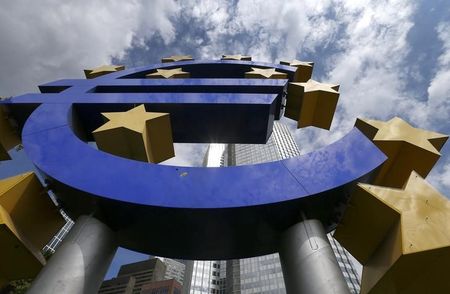By Stefano Bernabei and Eva Taylor
ROME/FRANKFURT (Reuters) - The European Union's markets watchdog has warned banks they must investigate any rumours about how they have fared in the European Central Bank's banking sector health check, sources familiar with the matter told Reuters.
Any leaks or market rumours have the potential to distort share prices of the 131 euro zone banks undergoing the ECB assessment, ranging from international titans such as Deutsche Bank to national champions including Bank of Ireland and Bank of Cyprus.
However, the latest missive from the authorities heaps even more advice on banks struggling to understand their responsibilities in relation to the health test results.
The ECB will begin "supervisory dialogues" with banks on Monday, in which they will be given partial and preliminary findings of the health assessment before a formal announcement in late October tells markets which banks need to raise more capital and take other steps to strengthen their operations.
National supervisors and the ECB must tread a fine line between giving the banks enough time to review their results and prepare responses while avoiding early revelations that would force a bank to disclose the outcome to markets.
The European Securities and Markets Authority (ESMA) sent a letter to national authorities on Sept. 9 instructing them on their obligations, one source said, and Italian regulator CONSOB notified Italian banks at the end of last week in a statement seen by Reuters.
CONSOB said that ESMA procedures require banks to make efforts to verify rumours about stress test outcomes and make disclosures if the rumours are true.
LACK OF CLARITY
If the bank is not aware of the information at centre of the rumour, the ECB or national supervisor should inform the bank, which should then evaluate the price sensitivity of the information and decide whether or not to make it public.
However, an Italian banking source said that it remains unclear to bankers whether they can avoid making disclosures after they are briefed on the test results.
The ECB is asking banks to sign non-disclosure declarations that forbid banks from making market announcements on discussions with supervisors on the tests before the test results are formally announced.
"The information set (banks will get during supervisory dialogue) is based on preliminary and partial information only," an ECB spokeswoman told Reuters. "Therefore any inferences drawn as to the final outcome of the exercise would be highly speculative."
The confidentiality document had to be reworked after German banks complained that the first version could put them in conflict with laws requiring disclosure of price-sensitive information.
On top of the ECB's results release, Italian banks were also told to disclose any "remedial action" over how they plan to fill possible capital shortfalls.
The ECB said capital shortfalls will have to be covered within six or nine months after the results are released, depending on where in the checks the shortfalls occurred.

Sources told Reuters last week that the ECB will announce the results of its assessment on Oct. 26.
(additional reporting by Andreas Kroener in Frankfurt; Editing by Laura Noonan and David Goodman)
